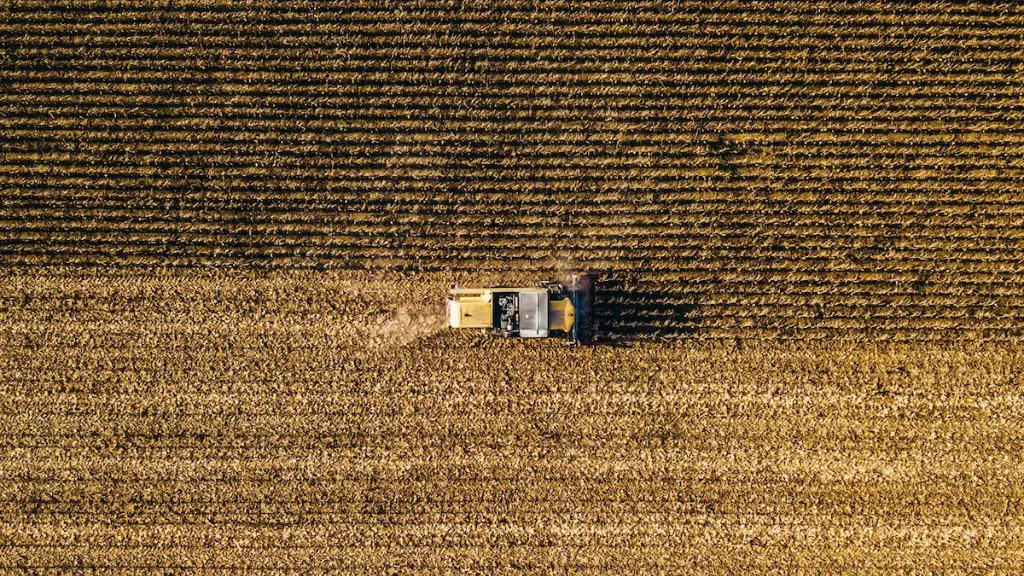Smart agriculture is a cutting-edge way of farming which uses technology and data to gain insight and make informed decisions on how to best manage resources. By leveraging the power of automation, sensors, smart phones, computers and the Internet of Things, farmers can gather and interpret data to accurately track growth, crop yield, soil nutrient stores and soil moisture. This helps growers to better understand their land and make decisions based on the most up-to-date findings. Smart agriculture offers numerous benefits that make it an attractive choice for growers, including saving time and money, increasing yields, reducing environmental impacts and improving quality of life.
One key benefit of smart agriculture is its ability to save time and money. Automation helps reduce the time and labor spent on traditional farming practices, such as tilling the soil and hand-weeding. Automated water and nutrient management systems help minimize water usage and nutrients applied, which can save costs. Additionally, data gathered from sensors and devices can be used to accurately inform decisions about planting dates and crop selection, ensuring farmers make the most out of the resources they have.
These advantages help farmers maximize their yields and reduce environmental impacts. Grown using precise measurements and precise timing, crops grown with smart agriculture techniques produce higher yields than those grown traditionally. Additionally, efficient water management techniques used with smart farming systems help conserve water and reduce water pollution. This helps farmers become more sustainable, protect their soil health, and better protect their water sources.
Adopting project management systems and remote monitoring systems can help growers reduce their reliance on physical labor. Remote sensors can collect data on crop health and yield, eliminating the need to manually check plants. Watering and nutrient delivery systems can be managed automatically, reducing the need to manually water plants. As a result, farmers can allocate their energy and resources to activities such as harvesting and marketing, building their businesses and increasing their yields.
Finally, smart agriculture has the potential to improve the quality of life for farmers and their families. Enhanced methods of monitoring, data gathering and analysis allow farmers to take a more informed and hands-off approach to their operations. This allows them to spend more time with their families and enjoy the peace of rural life, while still benefitting from the latest innovations in agriculture technology.
Advantages of Smart Agriculture
The benefits of smart agriculture are numerous and advantageous for growers, especially when compared to traditional farming methods. Smart agriculture offers a more efficient and environment-friendly approach to agriculture. Additionally, it helps farmers save time and money on labor and materials, as well as increasing crop yields. Additionally, it allows farmers to cut down on their reliance on manual labor and have more time to get involved in other activities.
Technological Aspects of Smart Agriculture
Modern technology is the basis of smart agriculture. Automation, sensors, smart phones, and internet connected devices, are integral in gathering and interpreting data for a more effective way of farming. This helps growers to make data-driven decisions on planting times, crop selection, and efficient use of water and other resources. Additionally, remote monitoring and project management systems help growers manage and monitor their operations from a distance, freeing up time for other activities.
Sustainability Benefits of Smart Agriculture
Smart agriculture can greatly help farmers become more sustainable, reduce environmental impact, and better protect their soil health and water sources. Efficient management systems help conserve water, reduce run-off and groundwater pollution, and accurately inform decisions on soil nutrient stores and moisture. Additionally, precise management techniques minimize the amount of labor, chemicals and fertilizers used, further protecting the environment.
The Impact on Quality of Life
The use of smart agriculture has the potential to improve the quality of life for farmers and their families. The reliance on manual labor is drastically reduced, giving farmers the opportunity to take a hands-off approach and still benefit from the latest innovations in agriculture technology. This allows them to spend more time with their families and still have time to get involved in other activities and pursue other interests.
Social and Economic Benefits
Smart agriculture can benefit farmers in social and economic ways. It brings learning and technology to rural areas, allowing smaller-scale farmers to benefit from access to resources that would otherwise be inaccessible for them. This spurs economic growth in these areas, and farmers are able to benefit from increased sales of their crops and agricultural products, as well as increased job opportunities.
Data-Driven Decisions
Decisions for smart farming are data-driven, giving growers the most accurate and up-to-date data to make informed decisions. This means growers can more accurately track and monitor crop growth, yield, and soil nutrient stores and moisture. This helps farmers maximize their yields and save resources, enabling them to reap the monetary and environmental benefits of efficient agricultural practices.


